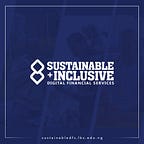Progress and Challenges with DFS Infrastructure in Nigeria
Taxation and Right-of-Way pricing listed among major constraints facing the sector
At a recent consultative working group forum held in August 2017, leading Digital Financial Services (DFS) ecosystem actors including providers, regulators, aggregators and technology providers deliberated on innovative ways to address the key market-enabling policies to aid financial inclusion in Nigeria.
In groups, the 63 delegates in attendance focused on 6 policy issues: (i) Global Identity Management/Know-Your-Customer (KYC) (ii) DFS Infrastructure (iii) DFS Environment: Interoperability, Collaboration and Competition (iv) Enabling Financial Inclusion at the Last Mile (v) Enabling environment for DFS ecosystem and (vi)Consumer Protection, Privacy & Data Protection, Cybercrime & Fraud.
Today’s article summarises varied viewpoints and recommendations from the deliberations on building an enabling environment for DFS ecosystem and DFS Infrastructure.
ENABLING ENVIRONMENT FOR DFS
The price (cost-to-serve) of digital financial services is influenced by many variables, taxation being a significant one. Nigeria’s government recognises the role of DFS in supporting financial inclusion and the related benefits for social development and economic growth. However, the tax treatment of the sector has not been fully aligned with the objective of advancing inclusion.
At the last mile, access to DFS is provided mostly by agents. These agents are Micro, Small & Medium Enterprises (MSMEs) that are constrained by multiple statutory obligations across the 3 tiers of government. For example, registered businesses are mandated by law to remit Federal Income Tax. At State level, there’s also income tax withholding and then at the local government level, there are a myriad of levies and fees that are often undocumented and administered indiscriminately.
The imposition of multiple, indiscriminate taxation drives up service provision costs that are ultimately passed on to the customers at the last mile. The poorest consumers, for whom access to financial services could deliver the greatest benefits, are often the most negatively affected.
Recommendations
By reforming sector-specific taxes and fees, government can play a key role in supporting the adoption of DFS with all its related social and economic benefits. One way this can be achieved is a one-stop agency to manage tax and other revenue payments across all tiers of government and multiple agencies. To address this, relevant amendments to existing Federal, State and Local Government tax legislation, policies and working arrangements should be effected.
DFS INFRASTRUCTURE
The following infrastructure related challenges were noted:
1. Right of Way Pricing
For many people, mobile is the only source of digital connectivity. Affordability of mobile financial services and inadequate network coverage remains a key barrier to connectivity. In a bid to enhance mobile reach, quality and access, telecommunications providers need to deploy infrastructure across the nation. The need for right-of-way permits granting access to road ducts is under the control of State Governments, with different pricing tariffs.
This lack of standardised right-of-way (RoW) pricing by State Governments has been an issue. In March 2013, the National Economic Council (NEC) approved a Resolution on “Multiple Taxation, Levies and Charges on Information and Communications Technology (ICT) Infrastructure in Nigeria” in respect of Right-of-Way that is yet to be implemented.
2. High Cost of Infrastructure
For many rural dwellers, the mobile channel is their first and major access to low-cost financial services. Therefore, we can not underplay the importance of mobile network operators (MNOs) in the ecosystem. Unfortunately efficient, good quality and low-cost telecommunication services required to extend financial inclusion to rural populations is being hampered by the high cost of expanding telecommunications infrastructure in those areas.
Also, the exclusion of telecommunications companies from the Central Bank of Nigeria’s (CBN) Fx window means that operators would have to pay a premium when purchasing equipment critical to their operations.
3. Security
Theft, vandalism and other security hazards to telecommunication infrastructure deployed nationwide are partially responsible for high operational costs and deficiencies in service quality. This has also been a major impediment to increased financial inclusion.
Recommendations
1. The Resolution on “Multiple Taxation, Levies and Charges on information and communications technology (ICT) Infrastructure in Nigeria” in respect of Right-of-Way should be implemented.
2. The CBN should avail long term intervention funds at low interest rates for rural telecommunication expansion.
3. CBN’s Foreign Exchange (Fx) Policy should be modified to include telecommunication companies in the CBN Fx window. In addition, existing spot rates should be revised downward and kept at par with rates obtainable in the forwards market deals, to enable operators pay for equipment and services critical to their network operations and enhancements.
4. The Universal Access and Universal Service Regulation 2007 should be reviewed to ensure easier access to Universal Service Provision Fund (USPF).
5. A review of the USPF and Nigerian Information Technology Development (NITDEV) Fund should be actively deployed to fund enhancement of rural telephony by stipulating catchment areas for telecommunication companies and other infrastructure providers up to Ward levels, and promoting compliance through incentives.
6. Furthermore, Nigerian Communications Commission (NCC) should review spectrum pricing policy for rural area penetration by telecommunication companies, thereby inducing cheaper spectrums or establishing a free spectrum altogether.
7. The designation of critical national infrastructure according to the provisions of the Cybercrime Act should be effected by the President and National Security Adviser (NSA).
8. Legislators should kindly expedite the passage of the Critical National infrastructure Bill.
9. Adequate protection of telecommunication infrastructure nationwide should be prioritised.
